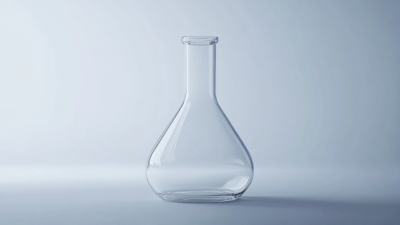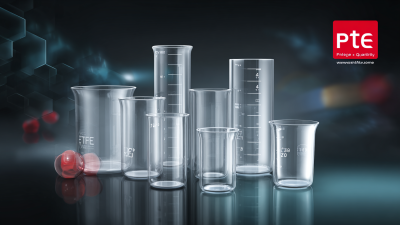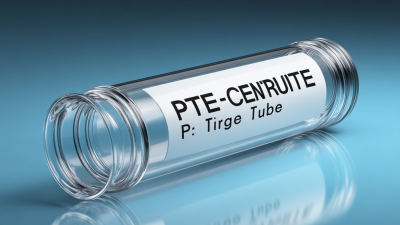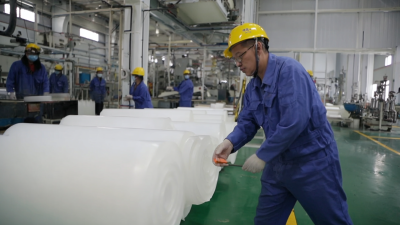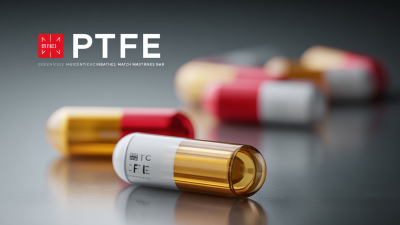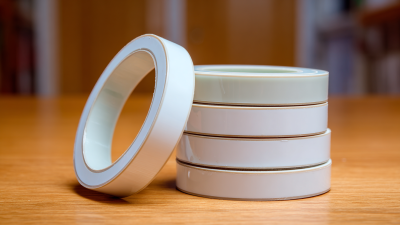The use of PTFE measuring cylinders in laboratory settings has increasingly gained recognition, driven by their unique advantages in precision and chemical resistance. According to a recent report by MarketsandMarkets, the global laboratory glassware market is projected to reach USD 4.55 billion by 2025, highlighting a growing trend towards specialized materials that enhance accuracy and safety in measurements.
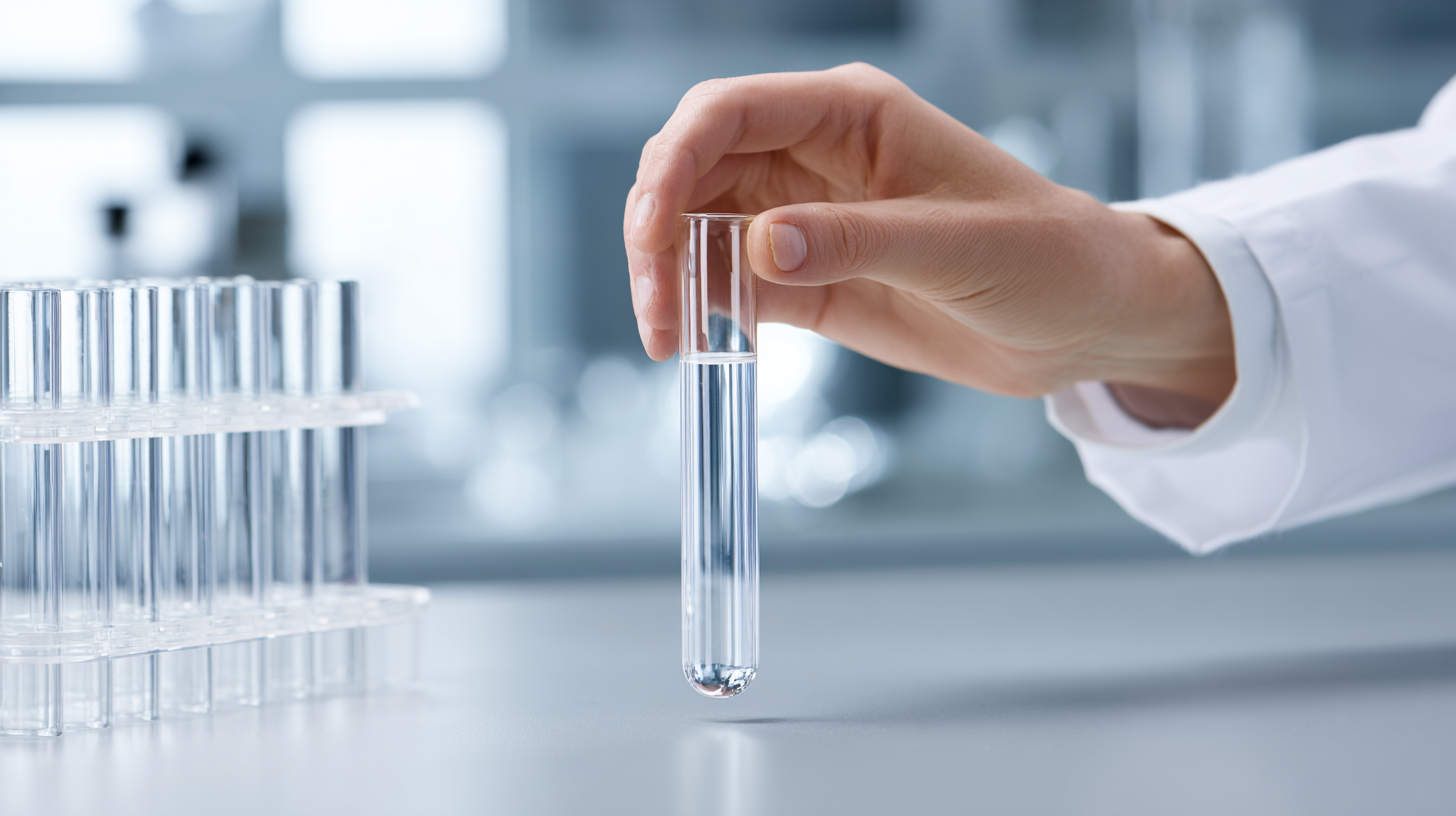 PTFE measuring cylinders not only offer exceptional durability against aggressive chemicals but also ensure minimal contamination in sensitive experiments, making them indispensable for researchers in pharmaceuticals, biotechnology, and environmental science. As the demand for high-quality laboratory equipment continues to rise, the incorporation of PTFE measuring cylinders stands out as a vital component in achieving the highest levels of precision and reliability in laboratory applications.
PTFE measuring cylinders not only offer exceptional durability against aggressive chemicals but also ensure minimal contamination in sensitive experiments, making them indispensable for researchers in pharmaceuticals, biotechnology, and environmental science. As the demand for high-quality laboratory equipment continues to rise, the incorporation of PTFE measuring cylinders stands out as a vital component in achieving the highest levels of precision and reliability in laboratory applications.
PTFE measuring cylinders offer distinct advantages in precision measurements, making them an invaluable tool in laboratory applications. Their chemical resistance and non-stick properties ensure that even viscous or reactive substances can be measured without risk of contamination or adherence, which can skew results. The inherent smoothness of PTFE surfaces allows for the accurate delivery of liquids, essential for experiments demanding precise volumes. This precision is paramount, as slight deviations can significantly affect experimental outcomes, emphasizing the need for reliable measurement tools.
In the context of the growing emphasis on accurate measuring techniques, the market for graduated cylinders has seen notable advancements. Innovations are not only focusing on accuracy but also on ease of use and versatility. For instance, the recent trends include the integration of advanced measurement technologies that enhance the reliability and speed of data collection, aligning with the burgeoning demands of modern laboratories. By incorporating PTFE measuring cylinders into their routines, laboratories can elevate their measurement precision, ensuring that every experiment is conducted with the highest level of accuracy.

PTFE (polytetrafluoroethylene) measuring cylinders offer unparalleled chemical resistance, making them an essential tool in laboratory settings. According to a recent report by the American Chemical Society, nearly 60% of laboratory accidents are the result of material incompatibility with aggressive chemicals. PTFE’s non-reactive nature means it can withstand a wide range of corrosive substances, including acids, bases, and solvents, which are often found in laboratory environments. This significantly reduces the risk of contamination and ensures that measurements remain accurate over time.
The durability of PTFE extends the lifespan of measuring cylinders, as they are less prone to cracking and breaking compared to glass or plastic alternatives. A study published in the Journal of Laboratory Safety indicated that laboratories using PTFE materials reported a 40% reduction in equipment replacement costs. Additionally, the smooth surface of PTFE prevents adherence of substances, ensuring that no residues compromise future measurements. This enhanced chemical resistance not only supports reliable laboratory use but also contributes to maintaining a safer working environment for laboratory personnel.
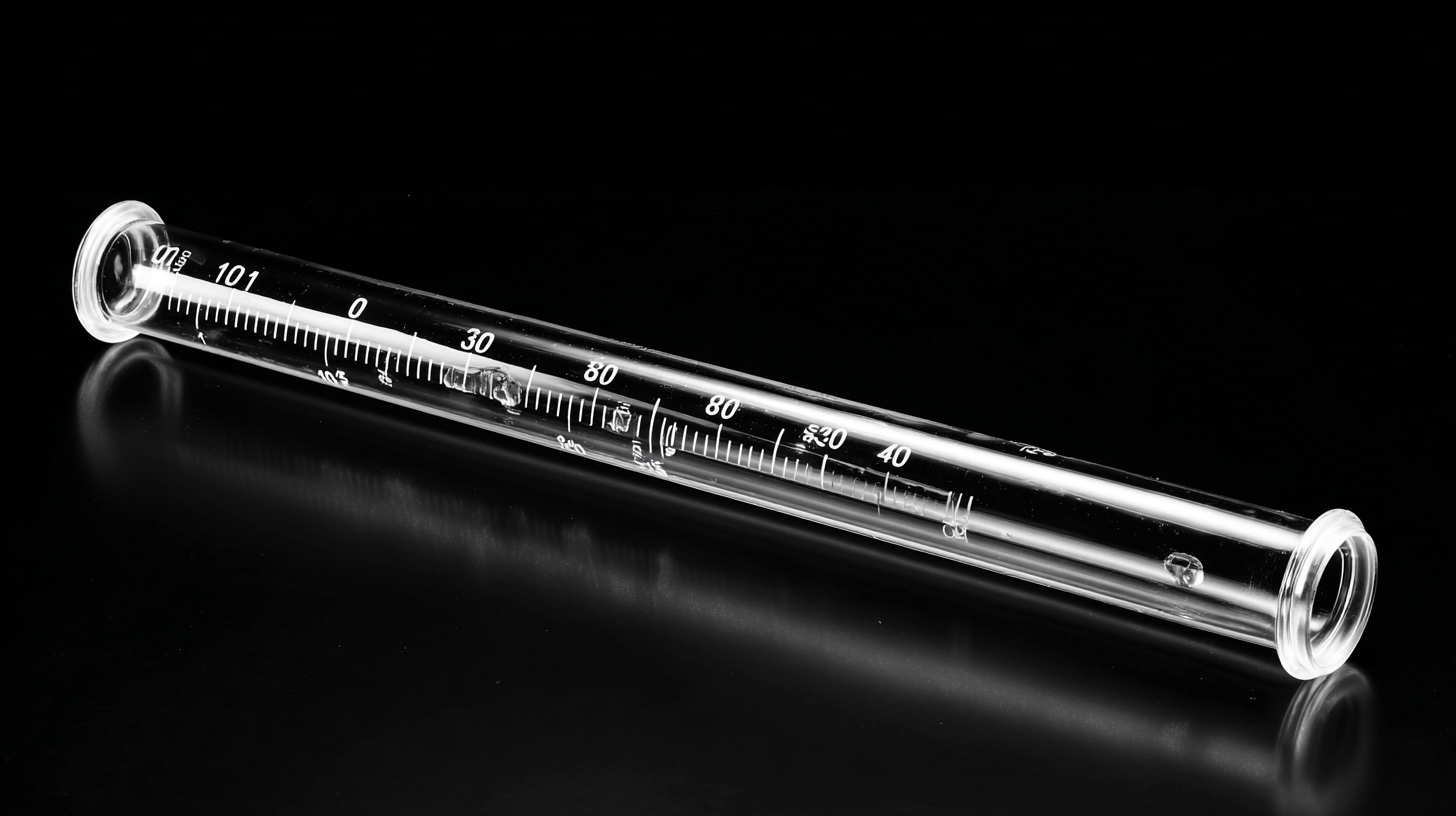 The use of PTFE (Polytetrafluoroethylene) measuring cylinders in laboratory environments brings significant advantages, particularly in maintaining improved temperature stability, which is crucial for achieving accurate volume readings. According to industry reports, PTFE materials exhibit superior thermal resistance, enabling them to maintain consistent measurements even when subjected to fluctuating temperatures. This quality minimizes the risk of volume expansion or contraction that might distort measurements, thus enhancing precision in quantitative analyses.
The use of PTFE (Polytetrafluoroethylene) measuring cylinders in laboratory environments brings significant advantages, particularly in maintaining improved temperature stability, which is crucial for achieving accurate volume readings. According to industry reports, PTFE materials exhibit superior thermal resistance, enabling them to maintain consistent measurements even when subjected to fluctuating temperatures. This quality minimizes the risk of volume expansion or contraction that might distort measurements, thus enhancing precision in quantitative analyses.
Moreover, the application of PTFE measuring cylinders aligns well with recent advancements in temperature monitoring technologies. For instance, maintaining stable environmental conditions, like in vaccine refrigeration systems, requires precise temperature regulation to ensure efficacy. PTFE's stability under varying temperatures can support laboratories in achieving reliable outcomes, which is critical in fields ranging from pharmaceutical research to environmental science. Data indicates that precise temperature control can reduce measurement errors by as much as 15%, illustrating the importance of using materials designed to perform under specific laboratory conditions.
PTFE measuring cylinders are transforming laboratory practices, offering significant advantages in terms of ease of cleaning and maintenance. According to the American Chemical Society, the materials used in laboratory equipment can greatly affect cleaning efficiency. The non-stick properties of PTFE (Polytetrafluoroethylene) means that residues and contaminants do not adhere firmly to the surface, facilitating easier and faster cleaning protocols. This reduction in cleaning time allows for higher throughput in laboratory workflows as researchers can quickly prepare equipment for subsequent tasks.
Moreover, a report from the National Institutes of Health indicated that maintaining a clean laboratory environment is crucial for accurate results and the longevity of equipment. PTFE measuring cylinders resist harsh chemicals and solvents, which reduces the degradation of the material during cleaning processes. Laboratories using PTFE cylinders can minimize the frequency and intensity of maintenance, allowing them to reallocate resources to critical research activities. This enhanced durability not only supports consistent laboratory performance but also contributes to overall operational efficiency and safety.
PTFE measuring cylinders have gained significant attention in laboratory applications due to their unique chemical resistance and accuracy. When considering long-term usage, the initial investment in PTFE equipment can be offset by their durability and minimal maintenance costs. According to a report by the Journal of Chemical Engineering, standard glass cylinders degrade over time, requiring frequent replacements that can increase overall laboratory expenses by up to 30% annually. In contrast, PTFE cylinders exhibit excellent resistance to corrosive substances, rendering them a viable option that can last significantly longer, thus saving costs in the long run.
Tips for maximizing the cost-effectiveness of PTFE measuring cylinders include regular inspections to ensure they remain free from scratches and contamination, which could compromise their longevity. Opting for bulk purchases can also lead to savings on shipping and per-unit costs, particularly as laboratories often expand their equipment inventory over time. Furthermore, employing PTFE cylinders for multi-purpose usage can enhance their value, as they are suitable for a wide range of applications involving both acidic and basic solutions.
The ongoing development of advanced manufacturing techniques has further improved the affordability of PTFE cylinders. Insights from the American Society for Testing and Materials (ASTM) reveal that the price of high-quality PTFE measuring devices has dropped by approximately 15% in the past five years, making them increasingly attractive for budget-conscious laboratories. By choosing PTFE measuring cylinders, laboratories not only enhance precision but also embrace a cost-effective solution that ensures reliability and performance over their lifespan.
